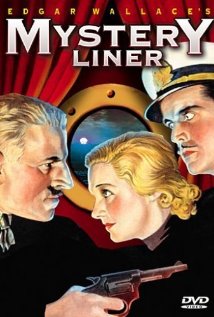
MYSTERY LINER
US, 1934, 62 minutes, Black and white.
Noah Beery, Astrid Alwyn, Edwin Maxwell, Gustav von Seyfertitz, Cornelius Keefe.
Directed by William Nigh.
This is one of the many supporting features, running an hour or so, that was so popular in the first part of the 1930s, generally murder mysteries, generally gathering of people in a confined space. This time it is on a liner and a cruise.
It is not one of the best examples of this type of film, a touch more corny and less exciting. It does gather a group of people on the boat before it sails, especially with Noah Beery as the captain affected mentally by some poison and reluctant to hand over his authority to the up-and-coming sailors, one of whom, it is later revealed, is a spy.
The point of interest is that a special technology is being set up, tele-communications, a television screen on which people can write and give directions, and ultimately control the sailing of the ship with those on board not having to do anything. It is kept in the secret room and, needless to say, there are spies who want to take possession of it. Their attempt on the captain fails, but the spy who is acting as captain is actually killed. There are various suspects – but, Major Pope, who was almost taking charge of everything turns out to be the villain and the killer.
As usual, there is a romantic subplot between the assistant captain and the nurse was looking after the captain. There is a suspicious character, with a heavy German accent, who turns out to be an inspector for the government and saves the day. For comic purposes, an arrogant old lady who lords it over her somewhat inept grandson and toadies up to all the people she thinks are significant on board keeps coming into view, ultimately latching onto the Inspector.
The acting is of its time, not particularly startling, and it is interesting to note the developments in technology, with memories of ships and battles in World War I, and imagining better control which came into effect, of course, in World War II.